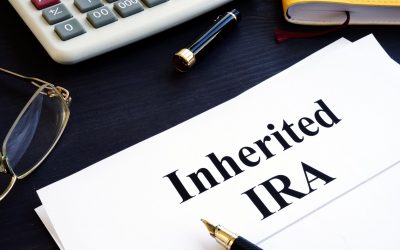
Retirement planning can seem overwhelming, even if you feel you’ve saved enough to retire. It’s hard to know where to begin because a comprehensive retirement plan involves so many elements, from an investment strategy to tax minimization. When faced with a complex problem, we can often end up procrastinating. But a better approach is to start with a few easy things.
#1 Estimate How Much Money You’ll Need Each Year in Retirement
A financial plan starts with knowing how much money you’ll need each year in retirement. Consider your expenses now and what will change when you retire or has changed since you’ve retired. Start with essential expenses like food, housing, and healthcare, and then move on to lifestyle expenses like travel, dining out, and gifts. Once you have an idea of how much you’ll need every year, you can work with a financial planner to see where your retirement income could come from.
#2 Factor in Taxes
When creating a retirement income plan, you’ll need to factor in taxes. Although you might not receive a paycheck anymore, taxes can still be a major expense in retirement. Your Social Security benefit, pension payments, investing income, and retirement account distributions may all be taxable. Drawing down your assets and realizing gains strategically can be important for minimizing your taxes in retirement. Start by figuring out your taxable and non-taxable sources of income in retirement and estimating what tax bracket you’ll be in based on your overall income.
#3 Assess Your Estate Plan
Do you have a will, a trust, or other important estate planning documents? If you have a retirement account such as a 401(k) or IRA, have you designated beneficiaries or looked at your designations recently? Maybe you designated a beneficiary when you first established your retirement account and haven’t looked at the paperwork since. During that time, you may have gotten married, divorced, had children, or become involved with a charity you would like to leave money to. Even if you updated your will or set up a trust, you need to update your retirement account beneficiary because beneficiary designations trump will and trust directives.
#4 Come Talk to Us
Whether you’re new to retirement planning or you have a plan and want to update it, come talk to us. We can help you with many areas of retirement planning, including creating retirement income, risk management, and Social Security maximization. We offer no-cost, no-obligation initial meetings where we learn about your retirement goals and financial planning needs. Sign up for a time to talk to us.



